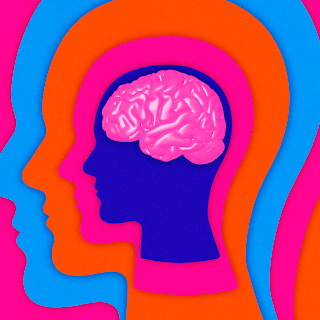The human brain
Arguably, the most marvellous and important organ in the human body, the Brain. (if we are regarding the heart). Us, homosapiens have had brains since...well...the first monkey on this planet. Researchers have been exploring this beautiful organ for centuries, yet there are still questions and secrets yet to unravel about this strange object in our heads. Let’s take a closer look...
According to etymological dictionaries dating back to the 19th century, the word Brain was derived from the old English ‘braegan’. It is also still used in certain western Germanic languages, such as ‘brein’ in Danish. The average size of the brain of a modern human would be approximately 1400 cc. It is significantly larger than it was centuries ago. However, size might not correlate to intelligence. The brain is one of the most complex organs in the human body. It serves as the centre of the nervous system and is made up of more than 100 billion nerves that communicate in synapses. It also helps to coordinate actions and reactions. This ensures we can feel, think, taste -- all the things that make us human.
The brain is split into three main parts: the cerebellum, the cerebrum and the brainstem. The cerebrum takes up the majority of the brain and controls the senses to help us interpret touch, smell, emotions, speech, listening, etc. The cerebellum controls muscle movement and helps us maintain balance. The brainstem connects the cerebrum and cerebellum to the spinal cord. It ensures the body is performing automatic functions like breathing, digestion, sneezing, etc.
Our brains work in funny ways and there are many strange facts that you probably didn't know. Such as: our brains make us perceive things differently based on our beliefs. Suppose you're in an argument with your parents. At that time, your brain will only see your side of the argument as correct and what the opposing person is saying to be completely ridiculous, but as you reflect on it later, you might have a second opinion. This is just human nature. Another fun fact is that the human brain is wired in a way to make objective thinking difficult. This can make us prone to bias and procrastinate. Unfortunately, there is no easy way to fix these biases, however we can still become aware of them and try to increase our understanding of these mistakes.


Comments
Post a Comment